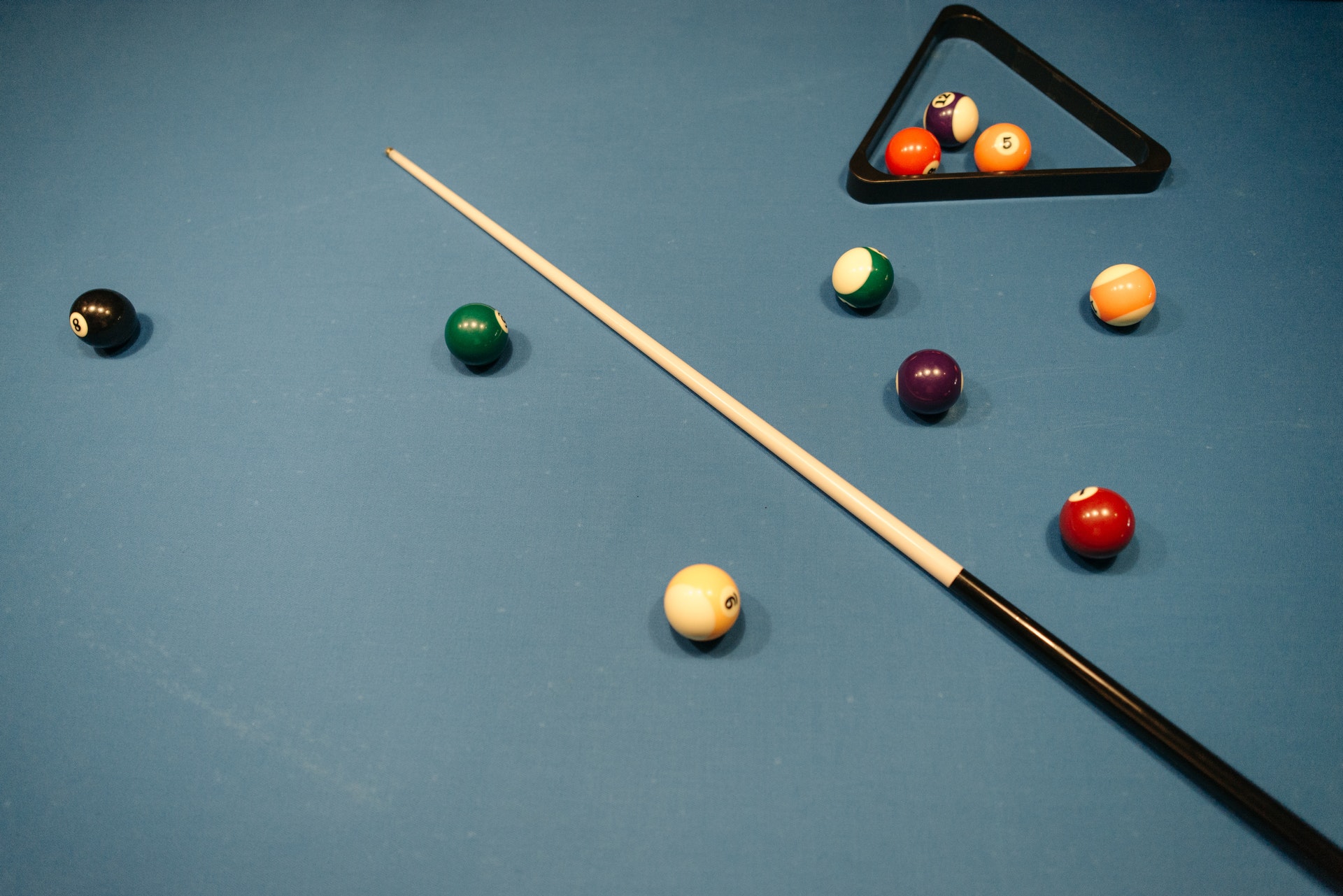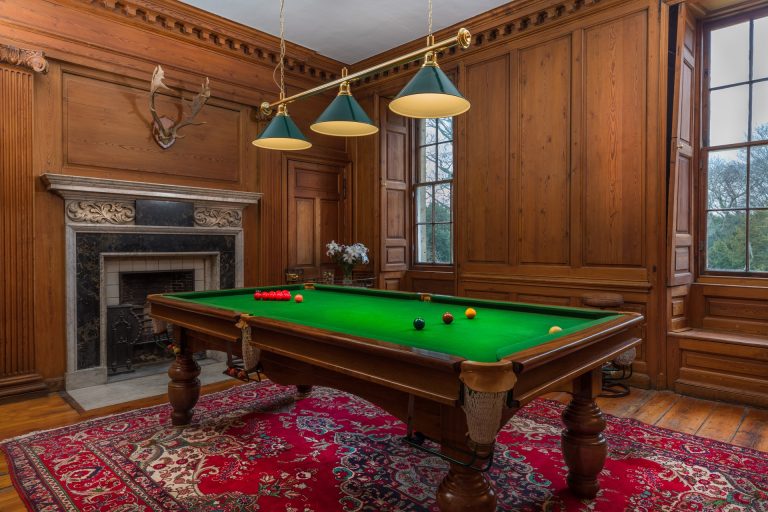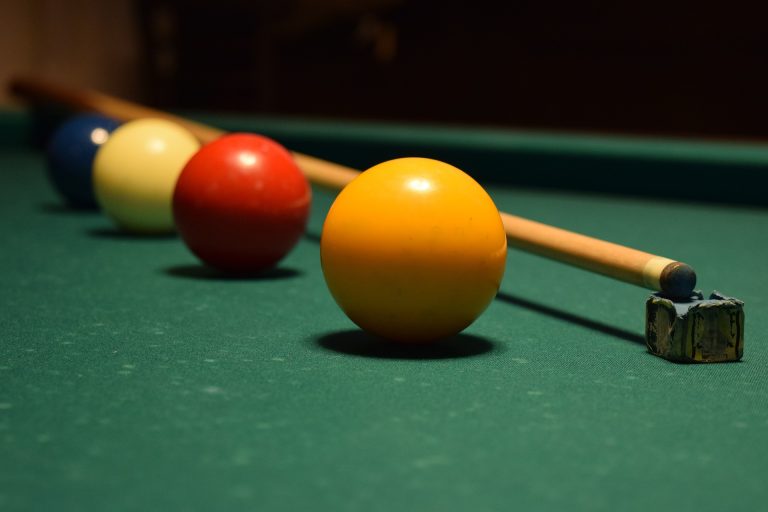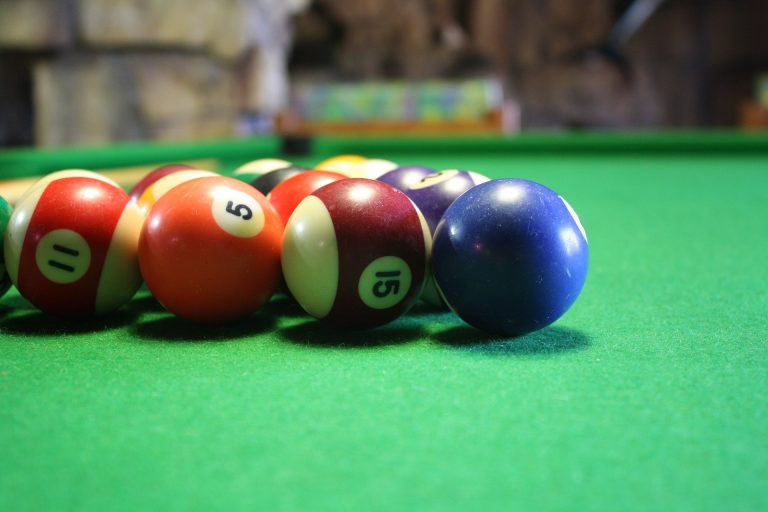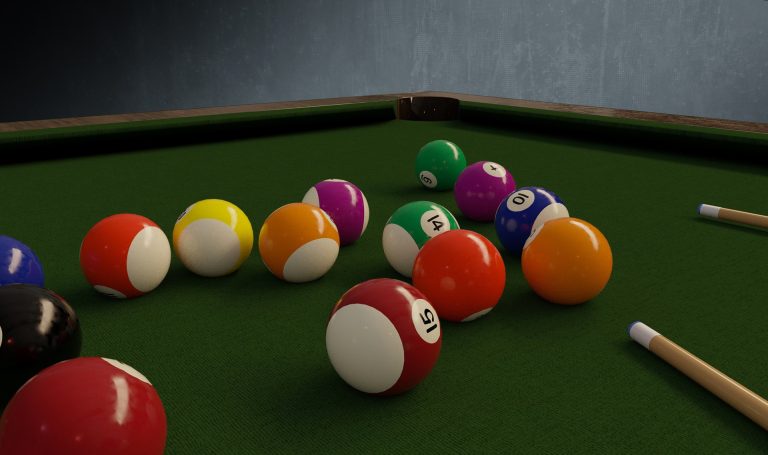Carbon Fiber vs Wood Pool Cue: What to Prefer?
If you’re a pool player, then you know that having a good cue is essential to your game. But what’s the best material for a cue? Carbon fiber vs wood pool cue?
Let’s take a look at the differences and benefits to help you decide which is right for you.
What Is Carbon Fiber Pool Cue?
A carbon fiber pool cue is a type of cue made from carbon fiber.
Carbon fiber is a material that is strong and lightweight, making it an ideal choice for use in a pool cue.
Carbon fiber cues are often used by professional players because of their durability and performance.
What Is Wood Pool Cue?
A wood pool cue is a cue stick that is made from wood. It is one of the most popular types of cue sticks and it is used in many different types of pool games.
There are many different types of wood that can be used to make a wood pool cue, but the most common type is maple.
Maple is a strong and sturdy wood that is perfect for making cue sticks. Other types of wood that can be used include oak, ash, and rosewood.
When choosing a wood pool cue, you will need to consider the weight and balance of the cue.
The weight and balance of a cue stick can affect how well it performs. You will also need to consider the size of the cue stick. The length and width of the cue stick will affect how well it hits the pool ball.
If you are looking for a wood pool cue that is durable and will last long, then you should consider getting a maple cue stick.
Maple is a strong and sturdy wood that is perfect for making pool cue sticks. It is also one of the most popular types of wood used to make pool cues.
If you want a wood pool cue that looks great, then you should consider getting an oak or rosewood cue stick.
Oak and rosewood are two of the most beautiful woods available and they will add a touch of class to your game room.
Carbon Fiber vs Wood Pool Cue: 5 Differences
Both carbon fiber and wood pool cues have their own unique benefits that can make a big difference in your game.
Here are 5 key differences between the two materials:
1. Carbon fiber is much more durable than wood. This means that it is less likely to warp or break over time, making it a great choice for long-term use.
2. Wood cues tend to have better “feel” than carbon fiber cues. This is because carbon fiber is a harder material, so it doesn’t absorb the impact of the ball as well.
This can make it difficult to control your shots, especially when trying to put spin on the ball.
3. Carbon fiber cues are typically more expensive than wood cues. This is because the manufacturing process is more complex and requires expensive materials.
4. Carbon fiber cues are lighter than wood cues, making them easier to handle and move around.
This can be particularly important for players who have trouble with arm fatigue.
5. Wood cues tend to look nicer than carbon fiber cues, due to the natural grain of the wood.
This can be a personal preference, but it’s something to consider if you’re looking for a cue that will stand out from the crowd.
Carbon Fiber vs Wood Pool Cue: 5 Benefits
If you’re looking for a new pool cue, you might be wondering if carbon fiber is better than wood.
Here are five benefits of using a carbon fiber pool cue:
1. Carbon fiber is much stronger than wood, so it’s less likely to break.
2. Carbon fiber is more accurate than wood, so your shots will be more consistent.
3. Carbon fiber is lighter than wood, which makes it easier to handle.
4. Carbon fiber doesn’t warp or shrink like wood can, so it will stay straighter over time.
5. Carbon fiber doesn’t absorb moisture like wood does, so it won’t get warped or damaged by humidity.
Overall, carbon fiber is a better choice than wood for a pool cue. It’s stronger, more accurate, and less likely to warp or damage.
If you’re looking for the best possible performance from your pool cue, go with a carbon fiber model.
Carbon Fiber vs Wood Pool Cue: 5 Things to Know
1. Weight:
One of the main reasons people consider a carbon fiber pool cue is because they are looking for a lighter option.
Carbon fiber cues weigh in at around 18-19oz, while wooden cues typically weigh in at around 20-21oz. For some players, this difference in weight can be the difference between winning and losing.
2. Durability:
Carbon fiber is known for its durability and strength. In fact, it is often used in construction because of its ability to withstand wear and tear.
This makes carbon fiber cues a good choice for players who are hard on their equipment. Wooden cues, on the other hand, can dent or warp over time, which can affect their performance.
3. Feel:
One of the things that carbon fiber cues are known for is their lack of vibration.
This can give players a more solid feel when they hit the cue ball, which can lead to more consistent shots.
Wooden cues, on the other hand, can have more vibration, which some players prefer.
4. Price:
Carbon fiber cues tend to be more expensive than wooden cues. This is because they are usually made with higher quality materials and construction.
If price is a factor in your decision making process, then you may want to consider a wooden cue.
5. Appearance:
This is a matter of personal preference, but some people prefer the look of carbon fiber over wood.
Carbon fiber cues can come in a variety of colors and designs, which can give your cue a unique look. Wooden cues are typically more plain, but there are still a variety of options to choose from.
| Don’t Miss This: Snooker Cue Vs Pool Cue |
Conclusion
So, what’s the verdict? Carbon fiber or wood pool cues?
In short, carbon fiber is stronger and more durable than wood; however, wood offers a better feel and sound.
It ultimately depends on your personal preferences as to which type of cue you choose.
Hopefully this article has helped you make an informed decision about which material is best for you.
Thanks for reading!

I’m Maverick and I love playing pool games with my friends. I found myself struggling for proper guidance playing this game and selecting good quality equipment for it. I, then, decided to create this blog to guide pool enthusiasts to get right information and start enjoying their game.

